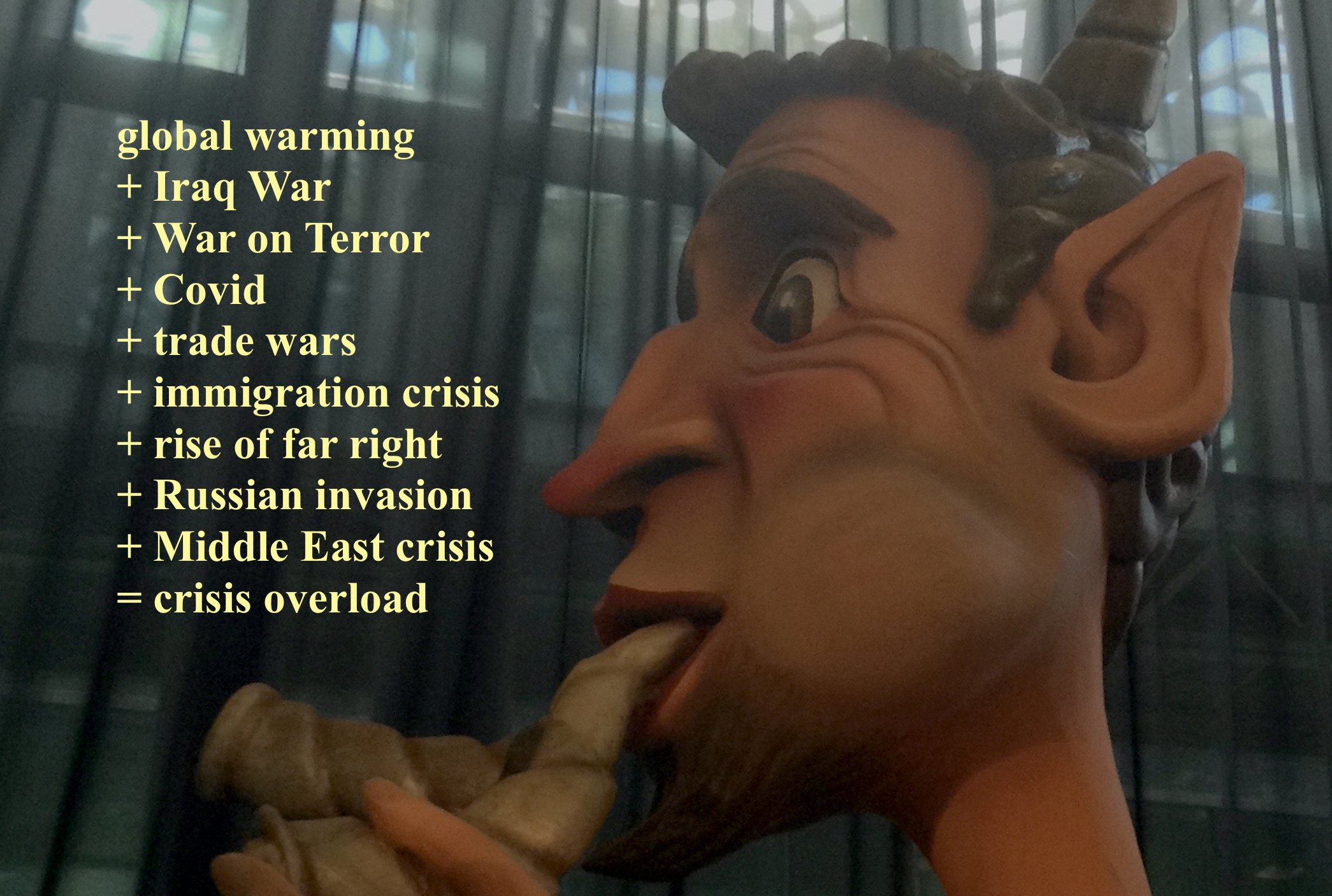Waking Up
With Open Eyes
Martyrs - Overview
🌗
In this section I look at the way many of us were forced to wake up to what was going on in the world. Many of us were shaken by the Russian invasion, and scrambled to find ways to cope with crisis overload.
🌗
Martyrs
My basic idea is that we can’t ignore this war and yet we can’t let ourselves get overwhelmed by it either. We can, for instance, be awakened to the brutal realities of war when we read the poetry of Serhiy Zhadan, who describes “how despair, like a butcher, can rip out the entrails of the world” (from “…Speak Now"). We can also see the resistance of brave Ukrainians as the resistance of martyrs, who die for everyone’s freedom. We don’t need to descend into the soul-ripping turmoil they experience in order to grasp what they’re going through — or to be motivated to argue their case.
We can find in Ukrainian experience a form of resistance and resilience to inspire us. Zhadan’s poetry gives us a weathered version of hope:
🌗
Overview
This section, Waking Up, is far more autobiographical than the other sections. In it, I try to chronicle how I and others went from being more or less content with the world — sensing in the flow of decades an end to bloody history — but were suddenly awakened by the shock of the old realities resurfacing: fanatical nationalism, open greed, hatred, and war.
The first three pages chronicle ❧ my long-standing fear of nuclear war, ❧ my attempt to ignore the latent problems within Russia, and ❧ my shock at the events of 2022. ⏳ The Ghost of Crises Past compares my fears today with ❧ Shelley’s mix of pessimism and optimism in early 19th century England, and with ❧ my fears during the Cold War in the 1980s. ✈️ Dream Vacation 2005 is a nostalgic take on travelling in Russia. Ah, a Russia that could have been... ⛱️ Rip Van Winkle then illustrates how many of us went abruptly from 30 years of self-induced dreaminess to a present state of high anxiety — as if a siren blasted a tsunami alert while we were sitting comfortably on a Cuban beach smoking a cigar and drinking a rum and coke, in the early evening, as the sun set over the fine sands of Playas del Este…
Left: Playas del Este, Cuba. Right: “Kyiv after Russian missile strikes on 10 October 2022. Intersection of Volodymyrska Street and Taras Shevchenko Boulevard” (from Wikimedia; source page from State Emergency Service of Ukraine).
The next four pages are poetic, autobiographical, polemical, and fictional. 🥕 The Carrot, ❤️ Caritas, & 🌉 Jovanka on the Bridge look at how hard it is to go from enjoying life to thinking about politics and war. 🎸 The Algorithmics looks at the algorithmic technology that keeps some in a terrorized bubble and funnels their thoughts into intolerance and violence.
The final three pages focus on how to cope with all this war and turmoil. ☯️ Both In and Out of the Game argues that we can’t ignore the Ukraine War, and yet we can’t let ourselves get swallowed by it either, Instead, we might, like Walt Whitman, try to remain “Apart from the pulling and hauling […] both in and out of the game.” ❄️ Political Modes of Being explores this engaging & escaping in Eliot, Keats, and Marcus Aurelius. 🏛️ Stoicism & Religion looks at the Stoicism of Marcus Aurelius and at religion which stands up to intolerance, authoritarianism, and injustice.
🌗
Next: ⏳ The Ghost of Crises Past





